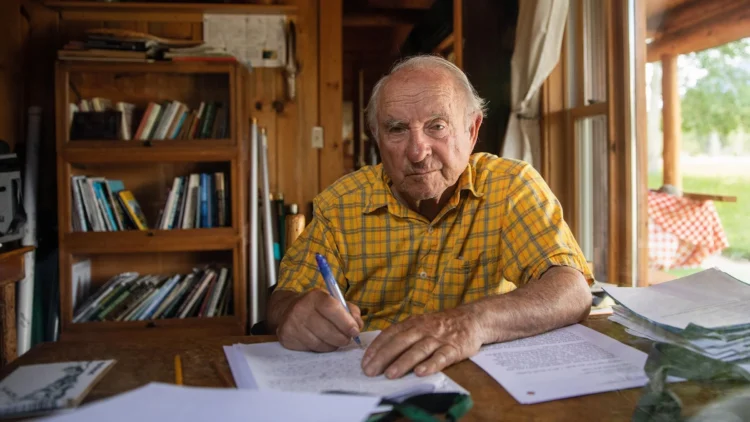By Emily Caulkett-
The billionaire owner of Patagonia has given his business away to an environmental trust and non-profit. The company said it will continue to produce outdoor clothing, camping supplies, and other goods, but now all profits will go to organisations to fight the climate crisis.
Chouinard’s family donated 2% of all stock and all decision-making authority to a trust, which will oversee the company’s mission and values. The other 98% of the company’s stock will go to a nonprofit called the Holdfast Collective, which “will use every dollar received to fight the environmental crisis, protect nature and biodiversity, and support thriving communities, as quickly as possible,” according to the statement.
“As of now, Earth is our only shareholder,” the company announced. “ALL profits, in perpetuity, will go to our mission to ‘save our home planet’.”
Chouinard, 83, worked with his wife and two children as well as teams of company lawyers to create a structure that will allow Patagonia to continue to operate as a for-profit company whose proceeds will go to benefit environmental efforts.
“If we have any hope of a thriving planet – much less a thriving business – 50 years from now, it is going to take all of us doing what we can with the resources we have,” said Chouinard in a statement. “This is another way we’ve found to do our part.”
Yvon Chouinard, founder of the company and reluctant billionaire, said when announcing the decision: “I never wanted to be a businessman.
“I started as a craftsman, making climbing gear for my friends and myself, then got into apparel.
“As we began to witness the extent of global warming and ecological destruction, and our own contribution to it, Patagonia committed to using our company to change the way business was done. If we could do the right thing while making enough to pay the bills, we could influence customers and other businesses, and maybe change the system along the way.”
Previously, Patagonia had given away 1% of sales each year, and 2018 changed the company’s business, stating: “We’re in business to save our home planet.” He has now decided to raise the amount he pays out.
The company’s voting stock will go to the Patagonia Purpose Trust, which will “protect the company’s values”. The non-voting stock will go to Holdfast Collective, a non-profit that will use the company’s profits each year for environmental action.
When decided what to do with the company, Mr Chouinard said that selling the company and donating the profits, or going public on the stock market, would not ensure Patagonia would continue its activist role.
In recent years, the company has become more outspoken on climate issues.
In 2018, Patagonia said it would donate all money gained from President Trump’s tax cuts to environmental causes.
A year earlier, in 2017, it even joined a lawsuit to stop the federal government from shrinking the Bears Ears and Grand Staircase-Escalante national monuments in Utah.
Mr Chouinard has always been uncomfortable with the vast personal wealth his successful company has brought.
He told the New York Times: “I was in Forbes magazine listed as a billionaire, which really, really pissed me off.
“I don’t have $1 billion in the bank. I don’t drive Lexuses.”
When deciding on what to do next, even his children did not want to take on the company.
Ryan Gellert, the company’s chief executive told the NYT: “They felt very strongly about it. I know it can sound flippant, but they really embody this notion that every billionaire is a policy failure.”
Now all the money from the company will be funnelled directly into “fighting the environmental crisis and defending nature”.
“It’s been nearly 50 years since we began our experiment in responsible business, and we are just getting started,” wrote Mr Chouinard.
“If we have any hope of a thriving planet — much less a thriving business — 50 years from now, it is going to take all of us doing what we can with the resources we have. This is another way we’ve found to do our part.
“Despite its immensity, the Earth’s resources are not infinite, and it’s clear we’ve exceeded its limits. But it’s also resilient. We can save our planet if we commit to it.




